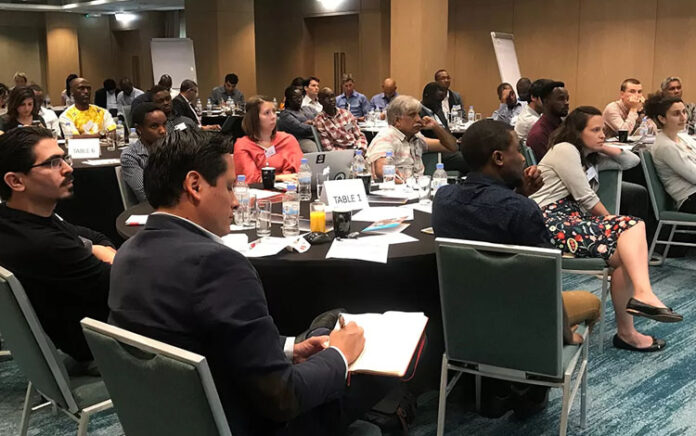Admittedly, the Africa CEO Forum just concluded at Kigali, which had seen a rare assemblage of top CEO’s operating in Africa and beyond had echoed some of the issues being taken up www.trendsnafrica.com over a period of time. A good number of CEO’s, who took part in the important CEO Talk underscored the need for changing the narrative of the regional integration. The reason is not far to seek. Outside the continent, Africa is looked upon as a single block, particularly for the economic engagement. That is a plus point, which no other continent can boast of. The future of the continent, they felt should be scripted as a united entity and not as a loose coming together of 54 nations. The economic interests of Africa, should be subsumed into one, rather than presenting as a fragmented market. Implicit in that conundrum is the need for evolving a shared vision and mission to address the challengers and cohesiveness in pursuing harmonious economic policies.
The main participants at the CEO Talk were Tewolde GebreMariam, CEO of Ethiopian Airlines, Diane Karusisi, CEO of Bank of Kigali, Tony Attah, CEO of Nigeria LNG and Antonio Nunes, CEO of Angola Cables. Their pet subject was seemingly Continental Free Trade Area (CFTA) and together they underscored the need for horning up the narrative not only to fast track it but also in giving the right direction, content and thrust. That is not just a work through policy framing and implementing the packages evolved at the top level. Every African should feel and benefit from the integration and that needs higher level of awareness among the common man.
Happily, over the years, there have been some success stories on economic integration The African continental free trade area (AfCFTA) is one among them. Many homespun companies in Africa are looking at pan-Africa as their market. For instance, the Ethiopian Airlines treat Africa as a base, while connecting 60 domestic destinations and an equal number destinations outside the continent. This was possible because the AfCFTA placed the Single African Air Transport Market (SAATM) and open sky policy in a better position to be fully implemented on a pan-Africa basis.
The other two vital segments that should lie at the root of the development strategy are focus on technology and revamping the financial sector. The continent should emerge as technology hub. That needs two things. One, wider use of technology in every aspect of human interface as is happening elsewhere in the world. Two, laying focus on innovation to make technologies relevant and accessible to ordinary people. Regional expansion and the concomitant efforts should be viewed from a digital prism. Equally significant is to bring the banking system closer to the people. Of late, banks in Africa are posting consistently impressive bottom lines. Yet, there is a financial exclusion created by alienation of common man from the banking system because of the higher lending rates . In the digital era greatly influenced by mobile telephony access of the common man to the banking sector can be considerably improved. Mobile Money is the new concept and Africa has to go a long way in chasing that goal.
A discourse, which perhaps could have been there at the center stage of the discussions could have been the private sector. The perception is that while the number of millionaires and billionaires are multiplying in the region, the progress towards privatization could have been more than what it is now. Most of the utilities and strategic enterprises are still owned by the state in most of the countries. A faster change towards private sector should be there to herald a dispensation where there is a proliferation of entrepreneurs, which also upholds the values of freedom and creativity. Indeed, that can also trigger massive employment growth, the pressing need of the continent.





